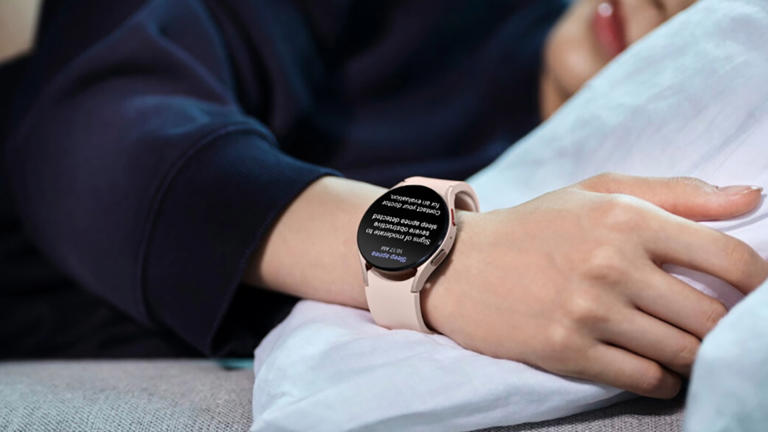
The upcoming Samsung Galaxy Watch 7 will likely incorporate built-in sleep apnea detection, as Samsung’s sensor technology has received official authorization from the Food and Drug Administration (FDA) in the United States for this purpose.
In a recent press release, Samsung proudly announced that it is the first company to receive FDA authorization for sleep apnea detection in the United States. This signifies the FDA’s confidence in the reliability of Samsung’s detection algorithms, allowing the company to market its devices as capable of identifying this sleep condition.
Anticipate the Galaxy Watch 7 to be promoted as featuring sleep apnea detection capabilities upon its release later this year. It is crucial to note that while this functionality enhances awareness, it does not guarantee infallible detection or serve as a substitute for a diagnosis from a trained clinician, as emphasized in Samsung’s official announcement.
Samsung has indicated that this feature will be accessible in the third quarter of this year, aligning with the expected release of the Galaxy Watch 7 around July or August. Although there is no confirmation regarding its availability on older watches in the US, Samsung’s post mentions the “Galaxy Watch series” and confirms its current implementation on models in South Korea.
Obstructive sleep apnea (OSA) is a condition characterized by blocked airways during sleep, often unnoticed and untreated. It can lead to temporary cessation of breathing, reducing oxygen supply and impacting sleep quality. OSA is linked to an elevated risk of cardiovascular diseases, including hypertension, coronary artery disease, heart failure, cardiac arrhythmia, and stroke. Samsung aims to identify more cases of OSA, with approximately 25% of men and 10% of women in the US estimated to experience this condition.
Samsung’s pursuit of sleep apnea detection has been evident, having already received clearance for this feature on its smartwatches in South Korea. The detection process requires two nights of blood oxygen readings and is suitable for individuals aged 22 and above.
This capability is of significant interest to other manufacturers, with Withings products already offering a similar feature. Apple is also working on incorporating sleep apnea detection into the Apple Watch, although ongoing patent disputes related to blood oxygen monitoring may delay its implementation.